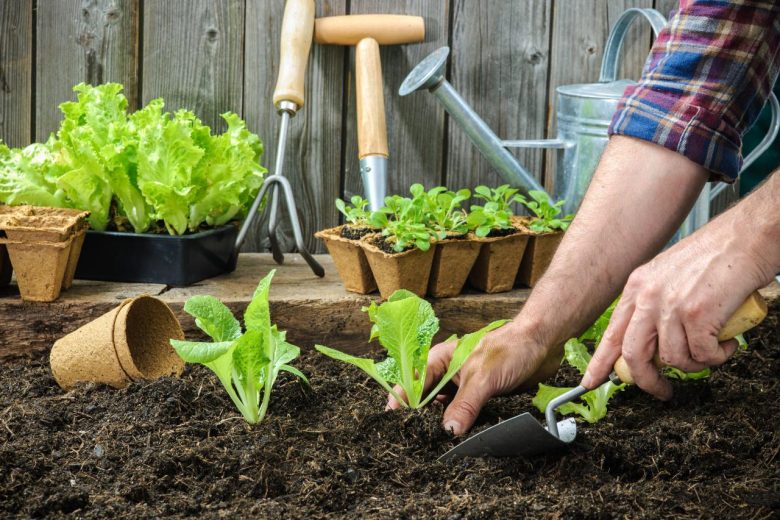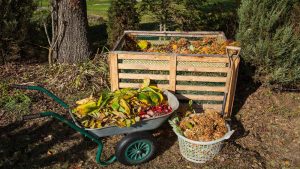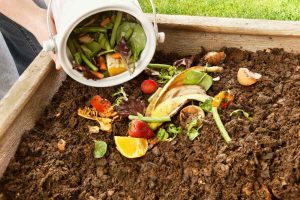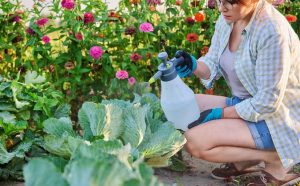Gardening is a fun activity that brings us closer to nature. But because of the environmental issues the world is facing, we need to change the way we garden. Sustainable gardening is a way to grow plants in your garden without harming the environment. Imagine growing beautiful flowers and delicious vegetables without using resources or harming animals.
This book shows you how to make your green space better for the environment. Whether you’ve been gardening for a long time or are just starting, there are some simple steps you can take to make your gardening more environmentally friendly. Let’s take a look at the benefits of planting in a way that doesn’t harm the environment, and learn how to create a garden that grows and thrives with nature!
Understanding Sustainability in Gardening
In horticulture, sustainability means finding a way to grow plants while protecting the environment. This means doing things that are good for the environment and that provide for your own needs. Sustainable gardening is all about reducing waste as much as possible. This includes composting kitchen and garden waste to naturally improve the soil. If people used less fertilizer, the ecosystem would be healthier.
Conserving water is also very important. Collecting rainwater or using techniques such as drip irrigation ensures efficient use of water, which helps protect this important resource. Biodiversity is also very important. Planting native species benefits the wildlife in the area and makes it harder for pests and diseases to invade.
Benefits of Sustainable Planting
Sustainable gardening has many benefits and can transform your garden into a thriving ecosystem. Increased biodiversity is one of the most important benefits. By planting different species, you can attract beneficial insects and animals, creating a balanced environment. Soil health is another big benefit. Sustainable gardening methods such as mulching and composting can add nutrients to the soil, making it stronger and better able to retain moisture. This makes the plants healthier and requires less chemical help.
Planting native plants can also reduce the time and money needed for maintenance. Because these plants have adapted to their environment, they are better able to resist pests and diseases without the need for human help. Sustainable gardening is good for your mental health because it connects you to nature, allowing you to relax and be more alert while caring for your garden.
Tips for Creating a Sustainable Garden
First, take a look around your space. Check how much water, sunlight, and shade it gets. This information will help you choose plants that will grow well in these conditions. Second, pay attention to the health of your soil. Improve your soil naturally with organic compost. When the soil is healthy, plants grow better and require less fertilizer.
You may want to set up a rainwater harvesting system. Rainwater harvesting can help you reduce urban water usage and is a great way to water your garden in an environmentally friendly way. Supports planting with other plants. Some plants help each other grow together, which repels pests and promotes growth without the use of pesticides.
Choose the Best Plants for Your Garden
To make your garden last, it’s important to choose the right plants. First, consider the weather and soil in your area. Native plants grow better in their natural habitat and require less care and water. Also, consider different habitats. Plant a variety of flowers, shrubs, and trees to attract different types of wildlife. Different types of flowers are beneficial to pollinators like bees and butterflies.
You can also plant companion plants. Some plants help each other grow better when they’re close together, which naturally deters pests and promotes growth. For example, planting tomatoes and basil together makes them taste better and repels insects. Don’t forget the changing seasons either. When you plant perennials with annuals, you’ll have color all year long and won’t have to replant as often. Choose your favorite colors and draw animals that suit you.
Maintaining a Sustainable Garden
Maintaining a sustainable garden is an ongoing process. Regular inspections are very important. Look for signs that the plant is stressed, has insects, or is sick. The amount you water can make a huge difference. Use rain barrels to collect water and opt for a drip irrigation system. This keeps your plants healthy and conserves resources. Mulching helps retain moisture in the soil and prevents weeds from growing. Choose organic materials such as wood chips or straws to get extra nutrients as they decompose.
Introduce beneficial insects to your garden and introduce more species. Plant native flowers where pollinators will come. This keeps the ecosystem balanced. To naturally improve soil health, rotate crops regularly and plant crops next to each other. This method uses fewer chemical fertilizers. Accept compost. Recycling food scraps not only reduces waste but also adds nutrients to the soil that plants need to grow.
Common Mistakes to Avoid When Growing Long-Term
A common mistake is using too many chemicals. Many gardeners believe that synthetic pesticides and fertilizers are necessary for healthy garden growth. They can harm the health of the soil and the insects that thrive in it. Another pitfall is poor planning. If you plant without understanding how the surrounding ecosystem works, you can disrupt it. Before you get started, figure out which plants grow best where you live.
It’s also common to forget to conserve water. Overwatering or using ineffective irrigation methods wastes resources. Put money into a drip irrigation system or rain barrels. Not adding variety to a garden often prevents it from reaching its full potential. While monocultures look great, they are more susceptible to pests and less resistant to disease. Adding a variety of plants to your green space can make it look and function better.
Conclusion
Sustainable agriculture isn’t just a trend; This is an important issue for the environment. Gardeners can make informed choices to keep ecosystems healthy. Every little thing matters. Using native plants or conserving water are great things you can do to help. Every garden becomes an oasis of life and a different variety of plants. Choosing sustainability can help people connect with nature. It changes the way we see the world around us and encourages us to live in the present. When you go out into your garden, think about how the choices you make will impact others. It is a wonderful thing to care not only for plants but also for the earth for future generations.




